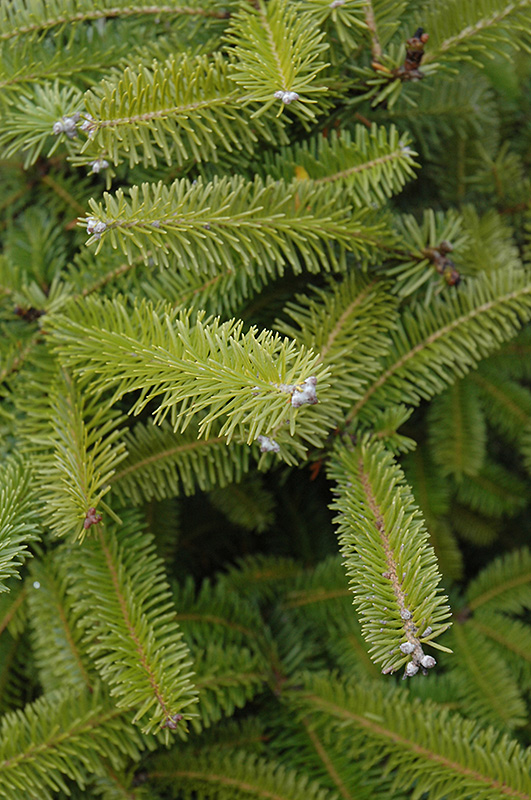Plant Finder
Height: 60 feet
Spread: 15 feet
Sunlight:
![]()
Hardiness Zone: 7a
Other Names: Common Silver Fir
Description:
This wonderful fir eventually grows very tall with a nice spreading habit; layered branches with mid-green needles with silver undersides;makes a wonderful evergreen focal point on the landscape
Ornamental Features
European Silver Fir is primarily valued in the landscape for its distinctively pyramidal habit of growth. It has attractive forest green foliage with silver undersides. The needles are highly ornamental and remain forest green throughout the winter. The smooth gray bark adds an interesting dimension to the landscape.
Landscape Attributes
European Silver Fir is a dense multi-stemmed evergreen tree with a distinctive and refined pyramidal form. Its relatively fine texture sets it apart from other landscape plants with less refined foliage.
This is a relatively low maintenance tree, and usually looks its best without pruning, although it will tolerate pruning. It has no significant negative characteristics.
European Silver Fir is recommended for the following landscape applications;
- Vertical Accent
- Hedges/Screening
- Windbreaks and Shelterbelts
- Naturalizing And Woodland Gardens
Planting & Growing
European Silver Fir will grow to be about 60 feet tall at maturity, with a spread of 15 feet. It has a low canopy, and should not be planted underneath power lines. It grows at a slow rate, and under ideal conditions can be expected to live for 50 years or more.
This tree should only be grown in full sunlight. It does best in average to evenly moist conditions, but will not tolerate standing water. It is not particular as to soil type, but has a definite preference for acidic soils. It is somewhat tolerant of urban pollution, and will benefit from being planted in a relatively sheltered location. Consider applying a thick mulch around the root zone in both summer and winter to conserve soil moisture and protect it in exposed locations or colder microclimates. This species is not originally from North America.

